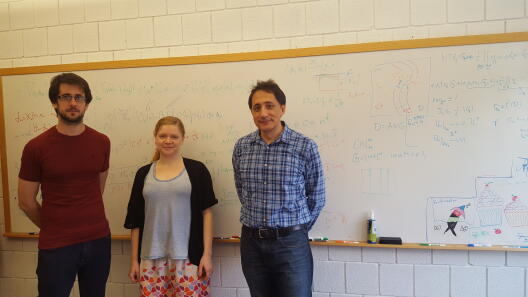Matthew at CMU

My recent secondment from Cambridge to CMU really felt like coming home - I was working at CMU just one year before my secondment so I fit straight into the department and new exactly what to expect. That said, the visa situation was a bit different from when I was working at the university. I organised my secondment so it would last less than 90 days, therefore I would be eligible to enter the US on an ESTA. Because of other commitments I needed to take two trips outside of the US during the secondment. I had no problem entering the US the first two times, on the third times I had a few more questions at immigration about why I was coming to the US so often but no serious problems - I would recommend that if you are coming to the US on an ESTA that you enter as few times as possible.
The problem myself and Dejan (with another collaborator Jeff Calder from the University of Minnesota) worked on concerned how many labelled data points one needs in order for Laplacian regularisation on graphs to be asymptotically well-posed. This was building on previous work of Dejan and myself where we considered the same problem but with the number of labelled data points fixed. This problem turned out to be harder than I expected (of course) but we made some nice progress. We weren't able to consider the problem in as much generality as I had hoped but we now have a result for the 2-Laplacian which I am in the process of writing up. We also had some nice insights into the behaviour of similar problems that aren't asymptotically well-posed. In particular, we thought about how the decision boundaries between classes behaves in the large data limit.
It was a lot of fun to work on a very specific problem intensely for a couple of months. There were some distractions - such as the machine learning reading group I engaged with - but mostly I was focussed on this problem and put other projects on hold. The trip was productive and we will write a paper on (at least what I consider to be) an interesting problem. And like any good research project we managed to create more problems than we solved.
Matthew

